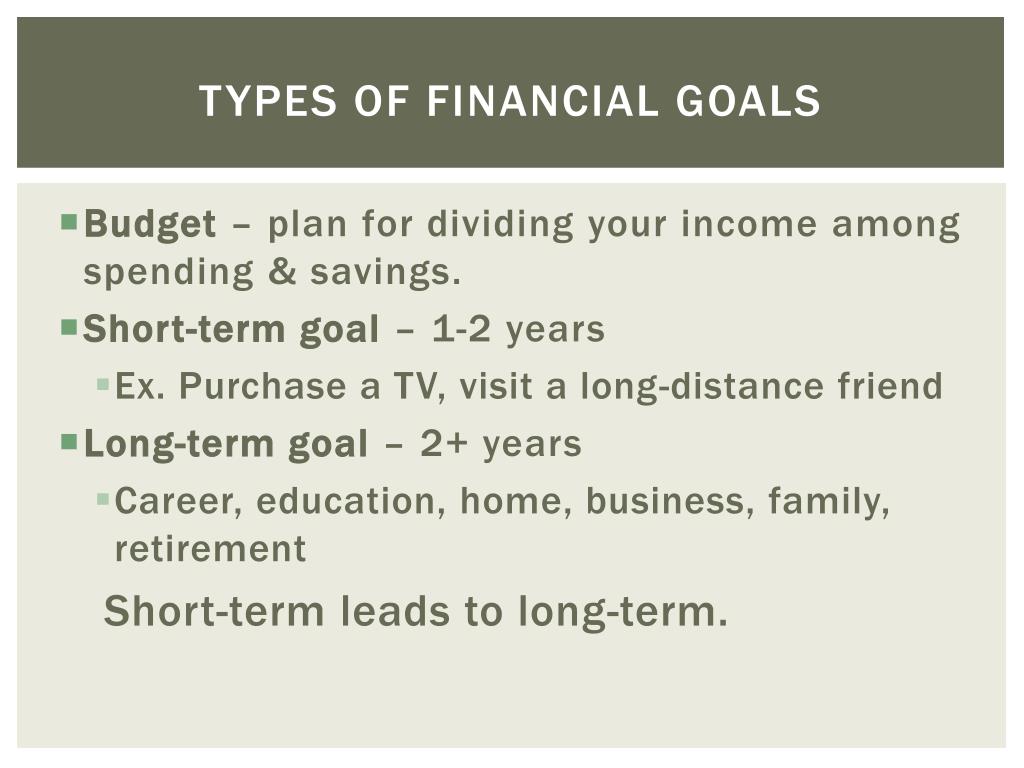The federal budget is crucial to every country’s economy, as it outlines the government’s financial plan for the upcoming year. It is a comprehensive document that covers all aspects of government spending and revenue, including taxes collected, expenditures on public services, and the national debt. Creating a federal budget is no simple task, and it involves careful planning to ensure the sound financial management of a country.

Image: www.slideserve.com
The main goal of the federal budget is to promote the country’s economic well-being by distributing funds to various sectors of the economy. It aims to drive economic growth, increase employment opportunities, and enhance the overall standard of living for citizens. Other significant goals include promoting equity, providing social security, and strengthening national security. Additional goals may vary among countries based on their economic conditions, policy priorities, and international commitments.
History and Evolution of the Federal Budget
The concept of a federal budget has been in practice for centuries, tracing its roots back to ancient civilizations like Egypt. However, the modern budgeting process as we know it emerged around the 19th century in many countries, particularly those adopting democratic principles. The budget document would be presented to the legislature for approval before the commencement of the new fiscal year.
The Main Components of the Federal Budget
The federal budget typically consists of several components:
- Revenue Sources: These refer to all the means by which the government generates income, such as taxes, fees, tariffs, and revenue from government-owned businesses.
- Government Expenditures: This covers the expenses incurred by the government, including operating costs for various departments, subsidies to citizens, investment in infrastructure, and interest payments on national debt.
- Fiscal Deficit and Surplus: If the government’s revenues exceeds its expenditures, this results a budget surplus. Conversely, if the spending surpasses income, a budget deficit arises, often financed by borrowing.
- Public Enterprises and Government-owned Corporations: Some government activities may involve business operations, leading to the inclusion of public enterprises or government-owned corporations within the budget.
- Contingency Funds and Emergency Reserves: Allocated funds set aside to cover unforeseen circumstances and emergencies, mitigating financial shocks or responding to crises.
The Budgeting Process
Creating the federal budget involves a multi-step process:
- Preparation Stage: Planning and estimating revenue and expenditure for the upcoming fiscal year.
- Legislative Approval: The proposed budget document is reviewed and debated by the legislature, resulting in its approval, amendments, or rejection.
- Implementation and Monitoring: Umsetzung und Überwachung der genehmigten Budgetmittel durch die zuständigen Regierungsbehörden.
- Audit and Evaluation: An independent body or agency reviews the budget implementation to ensure accountability and compliance with legal requirements.

Image: slideplayer.com
The Importance of a Sound Budget
A well-balanced budget ensures:
-
- Economic Stability:
Predictable and responsible budgeting fosters business confidence, promotes stable inflation rates, and manages imbalances. -
- Resource Allocation:
Directing funds to priority areas based on national goals and needs, maximizing the impact of public spending. - Public Accountability: Transparency in budget processes promotes public trust and allows citizens to scrutinize government expenditures.
-
- Sovereign Credit Rating:
A country’s ability to raise funds at favorable interest rates is influenced by its credit rating, which is partly based on the strength of its budget. - Meeting Global Obligations: Budgets consider international agreements, aid commitments, and obligations to supranational organizations.
What Is The Main Goal In Creating The Federal Budget
Conclusion
The federal budget is a linchpin for a country’s fiscal policy. It serves as both a planning and management tool, guiding the government’s allocation of resources to meet its economic and social objectives. With the main goal of promoting economic well-being, a well-crafted budget lays the foundation for a sustainable and prosperous future. Understanding the federal budget empowers citizens to participate in informed decision-making concerning the distribution of national resources.
